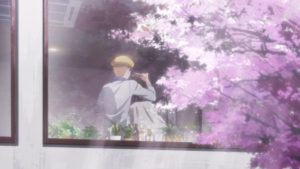 There have been a few series down the years about which this was true, but I’ve already observed it with Yesterday o Utatte: if there are things you hate about this show, chances are they’re the things I love about it. That can make covering a series a bit spiky sometimes, but c’est la vie – we can only control the things we can control. Manga readers may have their own views on where Yesterday is headed, but I’m taking it a week at a time and for now at least, I feel pretty comfortable with where I think Toume Kei is going with it.
There have been a few series down the years about which this was true, but I’ve already observed it with Yesterday o Utatte: if there are things you hate about this show, chances are they’re the things I love about it. That can make covering a series a bit spiky sometimes, but c’est la vie – we can only control the things we can control. Manga readers may have their own views on where Yesterday is headed, but I’m taking it a week at a time and for now at least, I feel pretty comfortable with where I think Toume Kei is going with it.
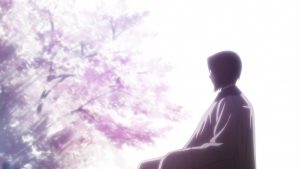 One thing I can’t figure out is why this 20 year-old series, which was never a world-beater in sales, managed not to just to get an anime but 18 episodes and a great staff. Not to mention a decent budget, because even with the group working on this show you don’t produce episodes like these first two on the cheap. Not that it’s a One Punch Man S1 sakuga-fest or anything, but that’s not the point. In visual terms Yesterday o Utatte is leaving everything this season in the dust. The cinematography is crazy good, the direction is thoughtful and nuanced, and the backgrounds are stylish and gorgeous. We’ll see how long the honeymoon lasts – maybe the budget doesn’t hold up, or COVID-19 wreaks havoc with the production – but for now, it’s a dream I don’t want to wake up from.
One thing I can’t figure out is why this 20 year-old series, which was never a world-beater in sales, managed not to just to get an anime but 18 episodes and a great staff. Not to mention a decent budget, because even with the group working on this show you don’t produce episodes like these first two on the cheap. Not that it’s a One Punch Man S1 sakuga-fest or anything, but that’s not the point. In visual terms Yesterday o Utatte is leaving everything this season in the dust. The cinematography is crazy good, the direction is thoughtful and nuanced, and the backgrounds are stylish and gorgeous. We’ll see how long the honeymoon lasts – maybe the budget doesn’t hold up, or COVID-19 wreaks havoc with the production – but for now, it’s a dream I don’t want to wake up from.
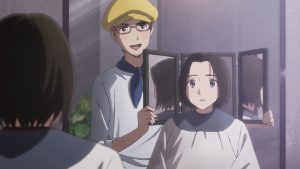 In terms of story, this episode introduces us to who’s presumably the next major piece of the puzzle, Hayakawa Rou (Natsuki Hanae). And he brings with him an explanation of why Shinako never seems to be totally present in the moment. Clearly she was in love with Rou’s brother, and just as clearly she hasn’t moved on from him six years after his death. What’s less clear is whether Rou-kun has come to Tokyo and enrolled at Shinako-sensei’s school specifically to be near her – almost certainly yes – and if so, whether it’s because he’s in love with her himself (probably) or because he wants to protect her.
In terms of story, this episode introduces us to who’s presumably the next major piece of the puzzle, Hayakawa Rou (Natsuki Hanae). And he brings with him an explanation of why Shinako never seems to be totally present in the moment. Clearly she was in love with Rou’s brother, and just as clearly she hasn’t moved on from him six years after his death. What’s less clear is whether Rou-kun has come to Tokyo and enrolled at Shinako-sensei’s school specifically to be near her – almost certainly yes – and if so, whether it’s because he’s in love with her himself (probably) or because he wants to protect her.
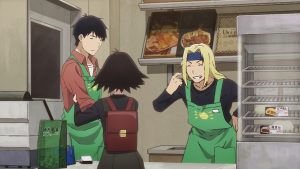 Is Rou annoying? Yes. And Haru is even more annoying, to be sure. But I would say that’s exactly the point. Yesterday o Utatte is a deft reminder of how annoying teenagers are, in fact, which is rather fitting as it’s a rare (though lightly less so this season) anime about adult problems. There are numerous themes in this story, but one of them is surely the juxtaposition of those in Haru and Rou’s age group and Rikuo and Shinako’s. The gap between them is not huge – five or six years – but it may as well be as wide as the Pacific ocean. Haru’s “contest” challenge, Rou barging into Rikuo’s workplace and ambushing him – these are the narcissistic acts of children who believe the world revolves around them. Rikuo and Shinako have figured out that it doesn’t, but I don’t know if they’re better off for it.
Is Rou annoying? Yes. And Haru is even more annoying, to be sure. But I would say that’s exactly the point. Yesterday o Utatte is a deft reminder of how annoying teenagers are, in fact, which is rather fitting as it’s a rare (though lightly less so this season) anime about adult problems. There are numerous themes in this story, but one of them is surely the juxtaposition of those in Haru and Rou’s age group and Rikuo and Shinako’s. The gap between them is not huge – five or six years – but it may as well be as wide as the Pacific ocean. Haru’s “contest” challenge, Rou barging into Rikuo’s workplace and ambushing him – these are the narcissistic acts of children who believe the world revolves around them. Rikuo and Shinako have figured out that it doesn’t, but I don’t know if they’re better off for it.
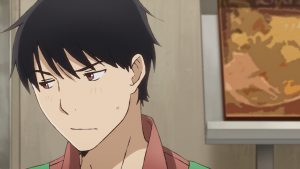 All four of these people are focused on their own problems because, in truth, everyone is. But Haru and Rou project outwards, and try to impose their will on the people who concern them. They’re pretentious, attention-seeking, and selfish. The “adults” (and the fact that 22-23 year-olds are treacherously close to childhood is a theme too) are selfish as well, but they’re internalizing it. And they’re trying not to let their own pain ruin things for the people who concern them. The kids see things with clarity still – even if their vision is inaccurate, to them it still seems crystal clear. The young adults are cursed with the weight of nuance.
All four of these people are focused on their own problems because, in truth, everyone is. But Haru and Rou project outwards, and try to impose their will on the people who concern them. They’re pretentious, attention-seeking, and selfish. The “adults” (and the fact that 22-23 year-olds are treacherously close to childhood is a theme too) are selfish as well, but they’re internalizing it. And they’re trying not to let their own pain ruin things for the people who concern them. The kids see things with clarity still – even if their vision is inaccurate, to them it still seems crystal clear. The young adults are cursed with the weight of nuance.
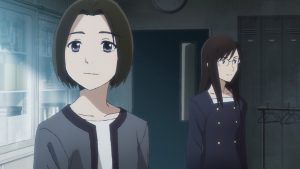 Another theme, of course, is whether it’s possible for men and women to be friends. They can, surely, but when love and rejection is involved? That’s a tough nut for anyone to crack, and Shinako is probably being selfish in placing those kinds of expectations on Rikuo. For her, moving forward means being able to put her lost love behind her – but probably not with Rikuo. How is Rikuo supposed to move forward if he’s spending time every day with the one he’s moored to? In a way he has the much tougher challenge, because for him tantalizing possibility still exists. I don’t know how he can be friends with Shinako under those circumstances, but knowing what he now does, more than ever he wants to be there to support her emotionally. That’s his dilemma.
Another theme, of course, is whether it’s possible for men and women to be friends. They can, surely, but when love and rejection is involved? That’s a tough nut for anyone to crack, and Shinako is probably being selfish in placing those kinds of expectations on Rikuo. For her, moving forward means being able to put her lost love behind her – but probably not with Rikuo. How is Rikuo supposed to move forward if he’s spending time every day with the one he’s moored to? In a way he has the much tougher challenge, because for him tantalizing possibility still exists. I don’t know how he can be friends with Shinako under those circumstances, but knowing what he now does, more than ever he wants to be there to support her emotionally. That’s his dilemma.
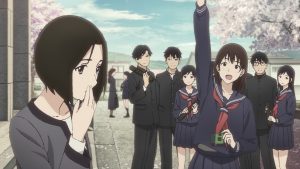 This is heavy stuff, and in a way it’s self-indulgent because of the emotional issues involved. I certainly get why that’s not going to be everybody’s cup of tea. But I strongly believe that Yesterday o Utatte is a series that’s not going to work if judged through the lens of traditional romance drama, because I don’t think that’s what it is. Vintage has something to do with that – the expectations for relationship-driven anime were different in 1997 than they are in 2020. But more than that I don’t see the romance angle itself as the point here – rather, it’s a tool by which to shed light on emotional issues which are both more personal and more universal. It’s not about the romance – it’s about personal experience, and how that experience unites us as human beings.
This is heavy stuff, and in a way it’s self-indulgent because of the emotional issues involved. I certainly get why that’s not going to be everybody’s cup of tea. But I strongly believe that Yesterday o Utatte is a series that’s not going to work if judged through the lens of traditional romance drama, because I don’t think that’s what it is. Vintage has something to do with that – the expectations for relationship-driven anime were different in 1997 than they are in 2020. But more than that I don’t see the romance angle itself as the point here – rather, it’s a tool by which to shed light on emotional issues which are both more personal and more universal. It’s not about the romance – it’s about personal experience, and how that experience unites us as human beings.


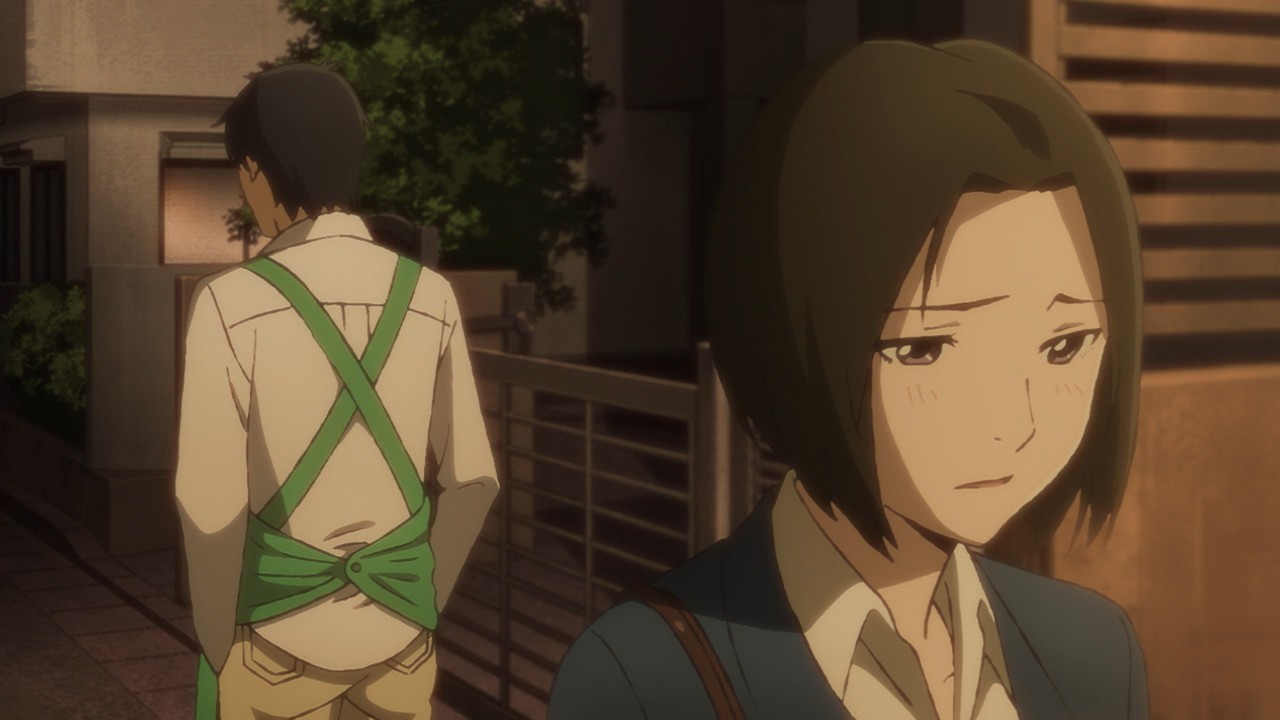
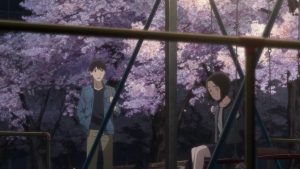
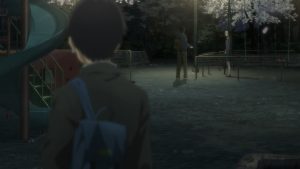
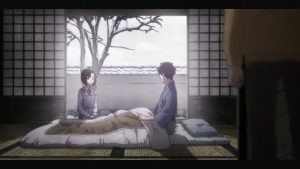
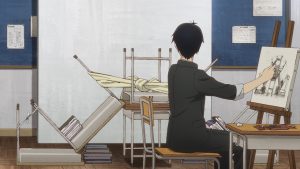
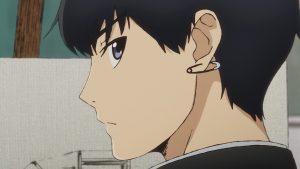
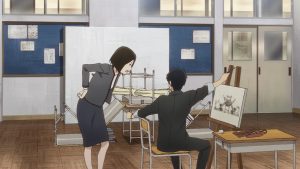
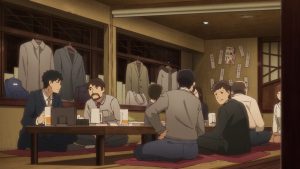
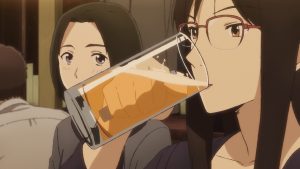
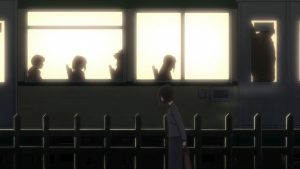
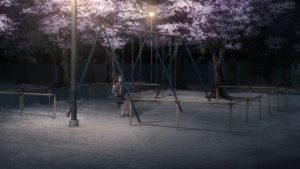

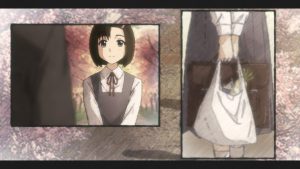
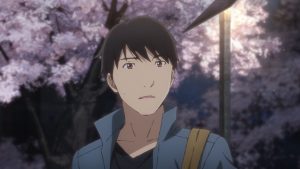
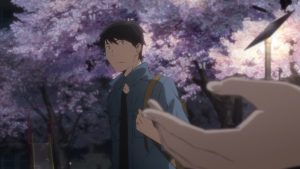
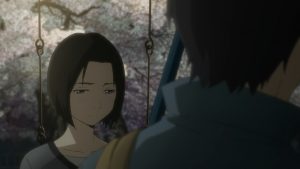
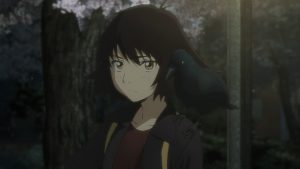
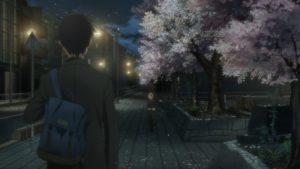
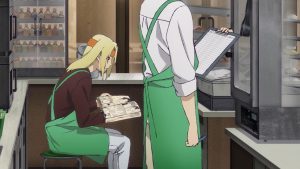
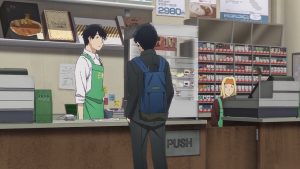
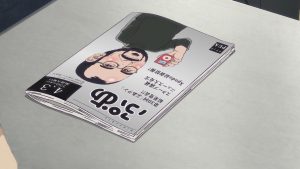
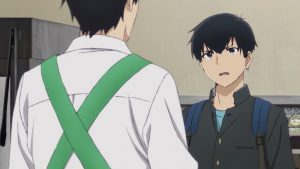
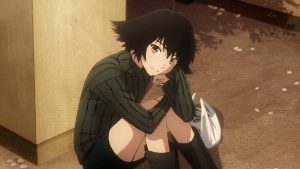
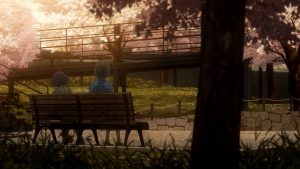
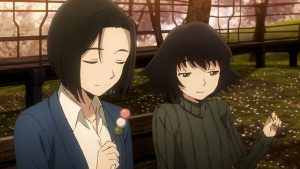
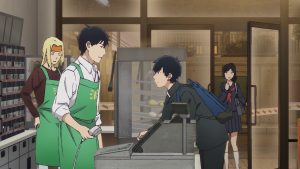
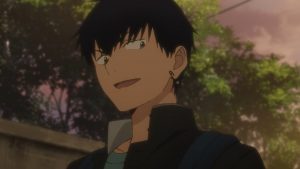
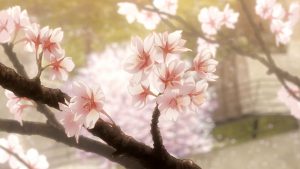
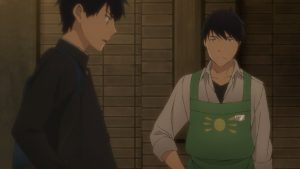
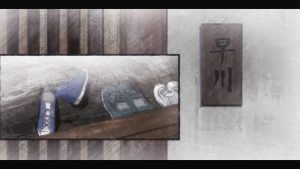
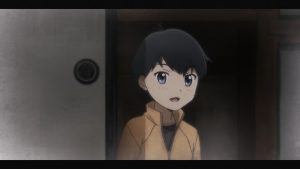
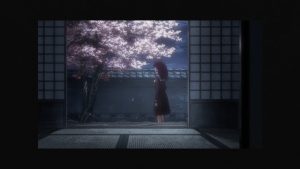
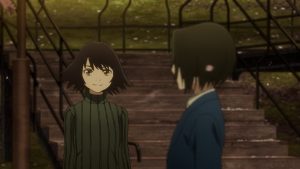
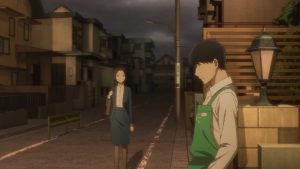
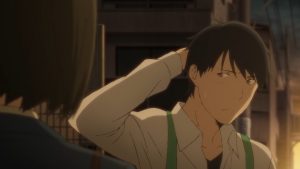
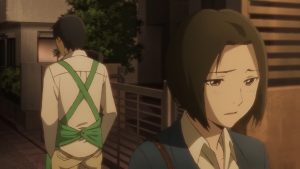
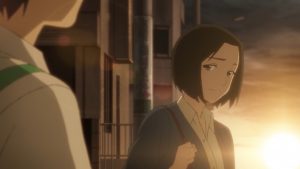
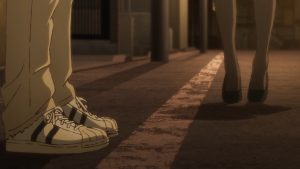
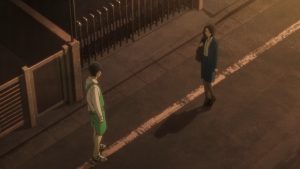
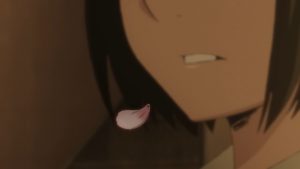
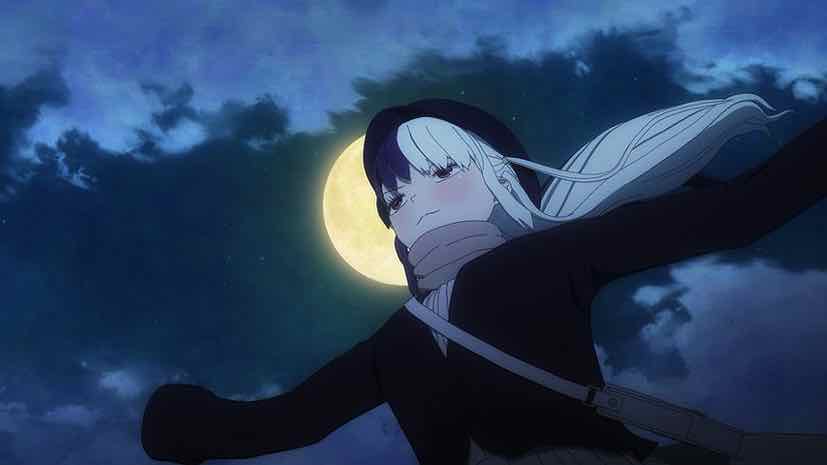
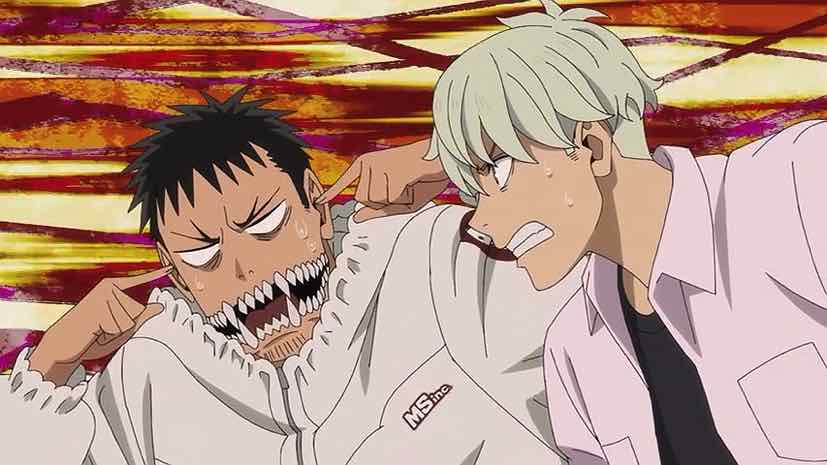
Panino Manino
April 12, 2020 at 12:18 pmBecause I read Maison Ikkoku after finishing Yesterday, I think, I missed this on the first time. Now that I’m watching the anime I reminded this similarity. It’s like Maison Ikkoku, but less funny.
I’m curious about what I’ll think watching this adaptation.
The romance is not the best part of it, for what I remember, but everything else was good and interesting.
Ronbb
April 12, 2020 at 5:55 pmI’m with you — this series is about relationships. This is quite an uncommon series, and I’m liking it a lot.
Panino Manino
April 13, 2020 at 12:36 amAnd yet the relationships are the most frustrating part of this…
The highlight is the journey to become professionally independent and accomplished.
Kim
April 12, 2020 at 7:30 pmI am honestly still not sure about the story yet but I think it’s the direction of the series that makes it compelling. I am not sure if that will be enough forever but for now I am in
Stöt
April 12, 2020 at 11:26 pmThis episode didn’t resonate with me as much as I hoped. Haru’s challenge was annoying and selfish – true to character, but slightly exhausting to witness. And maybe there’s something wrong with my subs, but the conversation about “can women and men be friends” didn’t make sense to me. It didn’t ring true to a reasonable adult character, at least. I’m not thrilled by Shinako’s responses in the end either, nor her passive demeanour.
I’ll give it another episode
Pieislife
April 13, 2020 at 10:06 amIn the 7 days since the first episode aired, I worked 12 hours a day…. and I read all 113 chapters of this great manga.
No spoilers, but I’m happy, little sleep deprived.
Guardian Enzo
April 13, 2020 at 10:42 amThank you for resisting the temptation to spoil. That’s as specific as I’d like it!
Panino Manino
April 13, 2020 at 10:42 pmDid you see the extra after episode?
Shinako says (to herself) very clearly there that she has not such feelings for Rikuo, that she can’t really feel love for him.